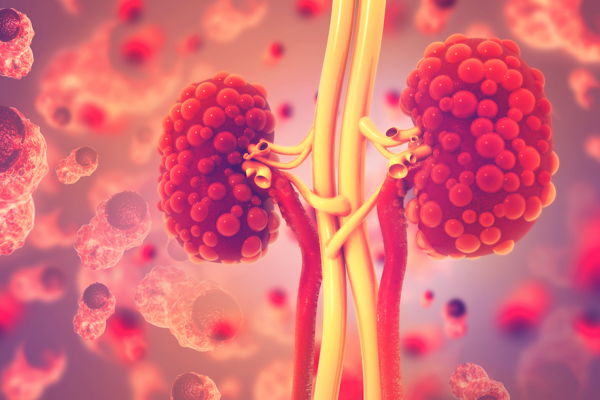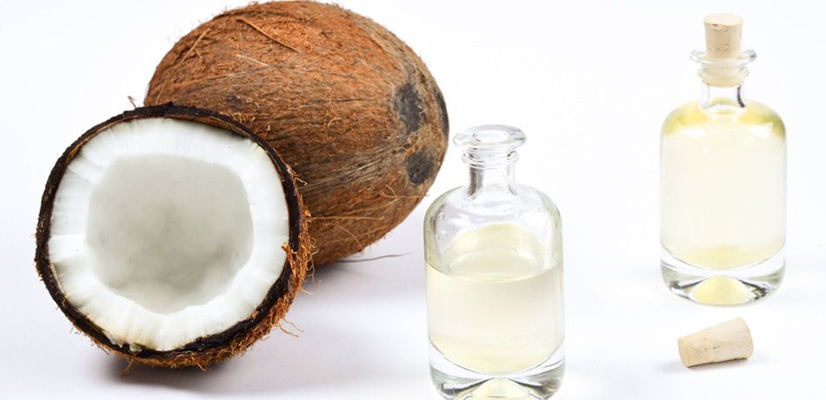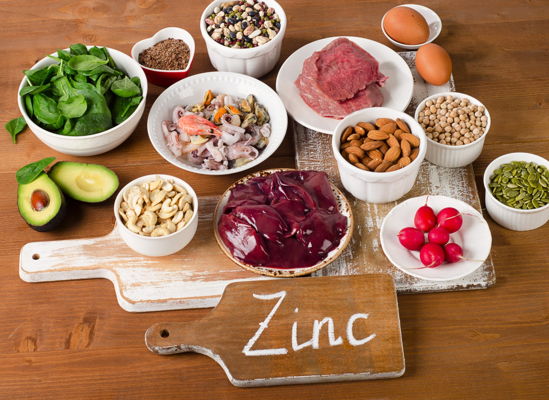Top 10 Foods to Nourish Your Thyroid
Thursday April 19, 2018 by Marianne Gutierrez 1,290 words
Did you know that the food you eat can affect your thyroid health?
Some foods can help boost your thyroid function and bring it into balance – while others will do the exact opposite.
Since our thyroid influences our metabolism, immune system, and digestion, it's essential that it's nourished with these 10 healthy foods.
1. Cod Liver Oil
Cod liver oil supports the functioning of the thyroid gland because of the nutrients it contains.
Cod liver oil is also rich in eicosapentaenoic acid (EPA) and docasahexaenoic acid (DHA). The body makes these fatty acids from omega-3 linolenic acid. EPA is as an important link in the chain of fatty acids that ultimately results in prostaglandins, localized tissue hormones while DHA is very important for the proper function of the brain and nervous system.
The hypothalamus in the brain stimulates hormone release therefore feeding the brain the food it needs is paramount for thyroid health and the health of the whole body. Cod liver oil contains DHA (also found in other animal fats) which is the food for the brain. Cod liver oil is also rich in Vitamin A. The Vitamin A in cod liver oil is bio-available, meaning easily available for the body to utilise. Vitamin A is required to convert T4, a thyroid stimulating hormone to T3. Vitamin A is required for a healthy immune system, mucus membranes, eye-sight and healthy skin. Cod liver oil and all fish oils and animal fats are essential for the body to produce hormones.
Vadyum Plysiuk / shutterstock.com
2. Butter
Butter is a good animal fat that contains many important nutrients, including Vitamin A and DHA. Vitamin A is also obtained from carotene, the yellow, orange and red pigment in fresh vegetables and fruit that is converted to Vitamin A by the thyroid. However, if the thyroid is not functioning well, then the conversion of carotene to Vitamin A is poor or may not take place at all. It is the Vitamin A that the body must have. The pure form of Vitamin A is only found in animals because it is stored in the liver. Therefore, the more animal fats (or liver) consumed the better for good thyroid function.
Margouillat Photo / shutterstock.com
3. Eggs
Eggs are a super nutrient dense food and contain protein, fats, sulphur, choline, DHA, calcium, magnesium, selenium, iodine, molybdenum, antioxidants, vitamins and zinc. Sulphur breaks down to sulphite in the body and molybdenum converts it to sulphate to reduce the dangerous build up of sulphites. Sulphur along with magnesium helps remove toxins. Iodine, another nutrient for detoxification, is also another important nutrient for the thyroid. Iodine is needed in the chain of events when making thyroid hormones. Therefore, eggs are an important part of one’s diet to maintain a healthy thyroid and immune system.
Sea Wave / shutterstock.com
4. Seafood
Seafood contains a rich supply of iodine and zinc. Zinc is essential in making enzymes for all systems in the body including the thyroid. An enzyme acts as a catalyst to produce a biochemical reaction. Zinc is required to produce the enzymes that help iodine make thyroid hormones. So add some more fish to your diet.
Bitt24 / shutterstock.com
5. Grains
Grains contain thiamine, B6 and folate acid which are all important to maintain a healthy thyroid gland. Vitamins help balance thyroid functions especially B1 thiamine which reduces the fatigue in thyroid disease by converting carbohydrates to energy. B6 supports the role of iodine. B vitamins support the functions and make-up of the nerves. However, there is a ‘catch 22’ with grains. There are three elements that need consideration when consuming grains, phytic acid, lectins and gluten - unless processed properly (fermented) these three can upset the gut causing poor nutritional uptake causing disease including thyroid disease. Eating fermented food may further cause symptoms in some people who cannot process histamine well, so they may have to stay away from foods that have been fermented. Another ‘grain’ or bean is soya which must also be fermented to be safe. Soya also contains phytoestrogens that can upset the thyroid and so must be avoided.
Madlen / shutterstock.com
6. Bananas
Bananas are high in B6, manganese, vitamin C, potassium and biotin and a little copper depending on growing conditions. Potassium helps reduce inflammation, while manganese and biotin help absorb calcium and work in the formation of bones and connective tissue. Copper is also essential for the release of iron from iron stores and for the formation of connective tissue. Bananas are also considered to be high histamine producers. Histamine may be involved with thyroid conditions as it creates inflammation in the body. Histamine needs the anti-histamine DAO to break it down and the body makes both. In some people including those with thyroid disease, not enough DAO is produced, and histamine can then cause a host of allergic reactions from itchy skin to a runny nose to anaphylaxis shock. So while bananas are useful for the B6 and their other nutrients, they may need to be taken with caution if histamine is a problem.
Iurii Kachkovskyi / shutterstock.com
7. Brown Rice
Rice, an extremely important and nutrient dense food, is another source of B vitamins, especially B6, B3 and B1, manganese, phosphorus, iron, which protect against heart disease and hormone related cancers. However, some of these nutrients are reduced in the processing of white rice. The best way to obtain these nutrients is by soaking brown rice overnight before use to break down the phytic acid. Brown rice along with other grains contain phytic acid which is often poorly broken down in the gut; phytic acid can cause gut problems and poor nutrient absorption. In healthy people the phytic acid may not be a cause for concern. Phytic acid or phytate (phytic acid bound to a nutrient) has an anti-oxidant capability in the body.
Prasit Jamkajornkiat / shutterstock.com
8. Red Meat
Red meat, a vital source of B12 and folic acid, is essential in making cells and DNA. People with thyroid disease may also be B12 deficient. Vegetarians will need to find an alternative source of B12 such as fortified foods. Eggs, cheese, shellfish and raw whole milk, do have some B12.
Tanya Sid / shutterstock.com
9. Broccoli
I have seen it mentioned on one or two blogs that broccoli along with other cruciferous vegetables upset the thyroid because they contain goitrogens which can interfere with thyroid hormones. However this statement appears to be false and cruciferous vegetables have a very good effect on thyroid health. The nutrients and antioxidants green veg contain are important in all areas of the body including the thyroid as they reduce cancer potential. When ill-health is present and to maintain a healthy thyroid vegetables are best cooked (which reduces the goitrogens if that is a concern for you) because the unhealthy body isn’t as efficient at digesting components in foods and cooking helps digestion.
JManuel Murillo / shutterstock.com
10. Coconut Oil
Other articles concerning thyroid suggest that coconut oil supports healthy thyroid function. There are no studies to demonstrate a direct benefit to the thyroid of adding coconut oil to the diet. However, because of coconut oil’s many benefits to the immune system and overall health to the body it may help the thyroid indirectly. The benefits include raising basal body temperature, inhibiting overgrowths of yeasts including candida and bacteria. Those with hyperthyroidism may need to take coconut oil with caution as it may cause body heat to increase too much but despite this in some thyroid conditions – coconut oil may offer some support.
White Bear Studio / shutterstock.com

16 Warning Signs of Lupus to Watch Out For
1. Unexplained Fever Lupus can affect everyone differently and some may have …


21 Features of Kidney Disease
1. Dizziness Kidney Disease is when the kidneys are not filtering blood …


Top 10 Foods to Nourish Your Thyroid
Did you know that the food you eat can affect your thyroid health? Some foods …


12 Facts About Your Borderline Personality …
1. It's Finally Classified As a Mental Illness Borderline Personality Disorder, …


12 Common Factors That Trigger Rosacea …
1. Makeup Some products used on the face and body or in the mouth ie: make-up, …


22 Common Symptoms of Type II Diabetes
1. Mood Changes Mood change is sometimes one of the first symptoms to suggest …
